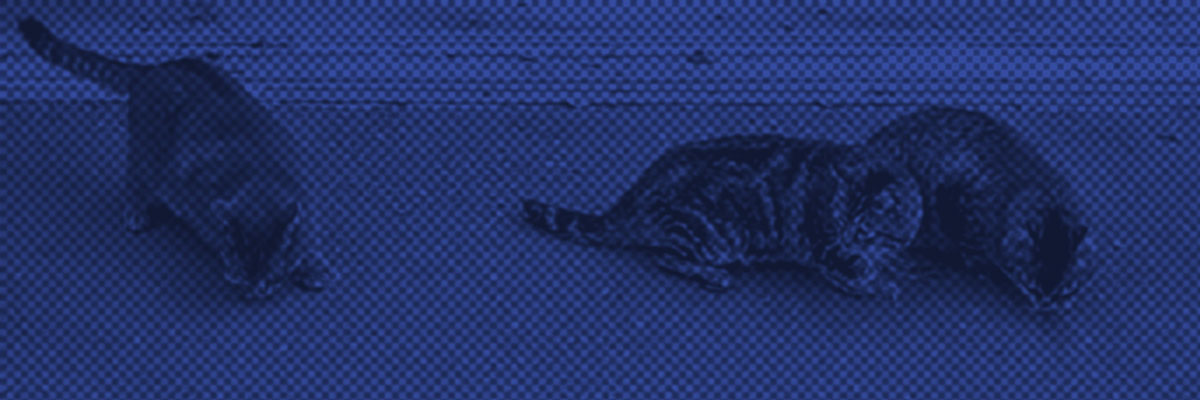
Welcome to the Feral Cat Group

The Feral Cat Group at SMU oversees the campus cat population. Volunteers, which include students, faculty, staff and alumni as well as community members, ensure that the cats are fed and watered, neutered or spayed, provided with shelter and generally cared for. “A feral cat is a cat who is born and raised in the wild, or one who has been abandoned or become lost and reverted back to a ‘wild,’ instinctual state in order to survive,” according to Alley Cat Rescue’s Guide to Managing Community Cats (2015). Those on campus often are the offspring of abandoned pets. This is different from a friendly stray that is just lost. Like most feral cats, the campus cats have limited human contact. Some hide. Some watch people from a distance. A few will allow touch and petting. SMU joins other universities across the country in using the veterinarian-approved TNR (Trap-Neuter-Return) system for managing the cat population. About 50 cats populate established colonies around the campus and university property.
How did the cats get here?

Campus settings are ripe for the proliferation of feral cats. Un-sterilized family pets are sometimes abandoned and left to reproduce in the wild. Feral cats, generation after generation, are the offspring of these orphaned pets. When abandoned or mistreated, or born outdoors and not socialized, a cat may become "feral" or unapproachable by people. Although they may look relaxed, they suffer through extremes of temperature, harsh living environments, dangerous traffic conditions, and the constant threat of predators.
How you can help
- Drive slowly through campus streets and driveways. Critter crossing!
- Keep your distance from the cats; if threatened or cornered, their behavior can be unpredictable.
- Do not disturb feeding stations or humane traps displaying the Feral Cat Group signs.
- Become a volunteer in the Feral Cat Group.
- Donate.
- Interested in adoption? Apply to give a campus cat a loving home.
In an emergency
If you have information about a cat needing attention, please contact campus police at 214-768-3388. We work closely with campus police, and they can contact us quickly.
More Information
To volunteer, make a suggestion or ask a question, email cats@smu.edu
To learn more about university feral cat programs, go to Aggie Feral Cat Alliance of Texas – Texas A&M College of Veterinary Medicine and Biomedical Sciences.